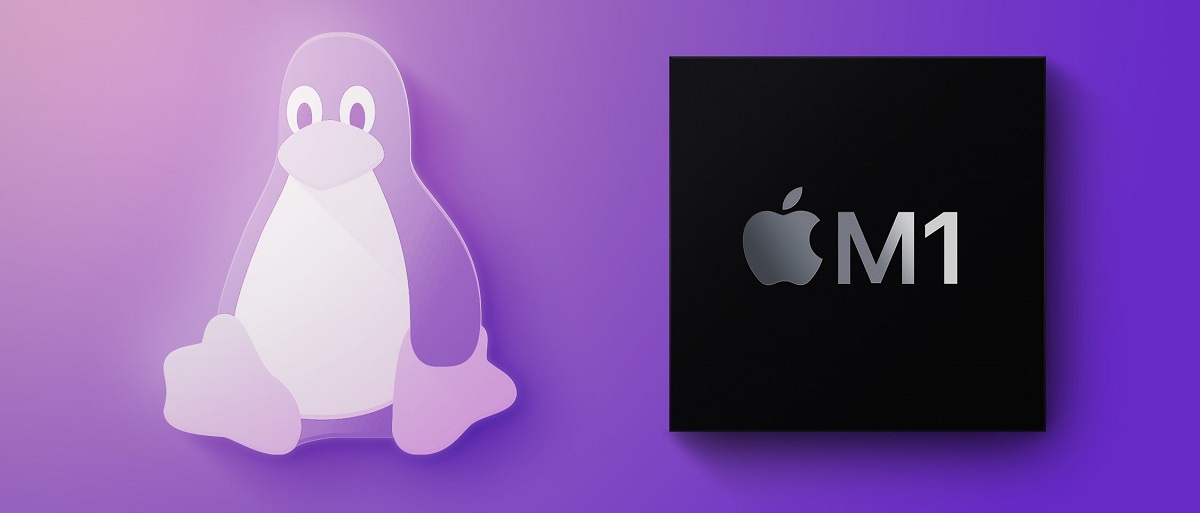
Mac computers running on M1 processors (such as entry-level MacBook Pro, Mac mini, and MacBook Air) now they can boot with Linux. A few days ago, Corellium, a virtualization company based in Florida, USA, announced the adaptation of Ubuntu to Mac M1.
Since the launch of the iPhone 6, the company has been following the development of Apple's mobile ecosystem.
The company said:
"Our Corellium virtualization platform provides security researchers with unprecedented knowledge to understand how operating systems and programs work on Apple's ARM processors."
"When Apple decided to allow custom kernels to be installed on Macs equipped with the M1 chip, we were very happy to move Linux to this chip to further our understanding of the hardware platform," he adds.
As the first chip created especially for Mac, the chip M1 offers great power and also has qualities for greater energy efficiency. In a Mac Mini, for example, Apple reports that the M1 chip offers up to three times the performance, up to six times faster graphics performance, and up to 15 times the machine learning speed of what was made. Here are some of the features of the Mac M1.
- 8-core CPU: four high-performance cores and four energy-efficient cores
- 8-core GPU - M1 chip achieves peak performance by consuming three times less power
a single chip system - Until now, a Mac required multiple chips to fully deploy its capabilities. With the M1 chip, these technologies (processor, I / O, security, memory, etc.) are combined into a single system on one chip.
Unified Memory: Thanks to Unified Memory Architecture (UMA), the M1 chip centralizes its low-latency, high-bandwidth memory into a single pool
machine learning: with its 16 cores, the M1 chip is capable of eleven trillion operations per second. It is completely designed to excel at machine learning;
16 Billion Transistors - The M1 chip has incredibly small transistors that are measured in atoms.
Inspired by Linus Torvalds, developers seem drawn to the possibility of running Linux on computers based on the ARM architecture and the performance provided by the Apple M1 chip.
Hector Martin, a developer who often runs Linux on various architectures, he also moved the Linux system to the Mac M1. When asked what he thinks of Apple's new laptops, Linus Torvald replied:
“Apple can run Linux on its cloud, but not on its laptop. I've been waiting for ARM laptops that can run Linux for a long time. The Linux kernel designer said I don't have time to play around with this problem, and I don't have time to fight those companies that don't help.
Apple filed a lawsuit against Corellium in August 2019, which was co-founded by Amanda Gorton and Chris Wade in 2017.
In response to Apple's complaint, Corellium in turn accused Apple of using "unfair business practices that must be stopped by the court."
According to Corellium, Apple knew about and nurtured its business until it decided to offer its own competing product.
Earlier this year, a Florida federal judge dismissed Apple's allegations that Corellium violated copyright law with its software that helps security researchers find security bugs and vulnerabilities in Apple products.
In its complaint, Apple alleged that the software company copied the operating system, graphical user interface, and other aspects of the devices without permission.
The apple company accuses Corellium of acting under the pretext of helping to discover bugs in the iPhone operating system, but then sells the information "on the open market to the highest bidder."
- Corellium explained in detail how they got Ubuntu to work on Mac M1. The article includes a tutorial to install Ubuntu on Mac M1. Following the steps, we ended up doing a direct boot from a USB port.
Source: https://corellium.com